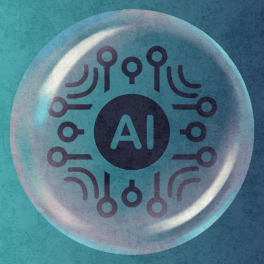
In the Netflix series, ‘Never Have I Ever’ we meet young Indian-American teen Devi Vishwakumar, who is manoeuvring herself around her teenage years, after the trauma of losing her father and being paralyzed for three months. In Episode 4 of Season 1 however, she’s met with the common “identity crisis” issue that most people born or raised in the diaspora are faced with. She is attending celebrations for the Hindu holiday, ‘Ganesh Puja’ which celebrates Lord Ganesh, but in the midst of the festivities, she she is found by her high school crush Paxton, kicking lockers in the hallway. She explains to him she’s in a mood because she feels like some people think she is either “too Indian” or “not Indian enough” this experience is not uncommon for many.

There are two worlds that exist for people living in the diaspora, their home country and host country, often times because of the differences in heritage between the countries, there is often confusion on what to identify as. With being born or raised in the diaspora, your geographical positioning has a significant influence on your identity. For example in the previously mentioned series Devi is born to cultural Indian parents and is expected to lead the conservative Indian lifestyle, but because she’s living in America, a lot of the more liberal American values have rubbed off on her and picking and choosing what suits her best is not easy.
Grace Mabele, a University of the Witwatersrand student with Congolese-born parents shares how, although she was born in South Africa, she “lets people choose what they want to identify her as”. Often her South African citizenship is questioned because she cannot speak any South African languages fluently, and other times her Congolese ethnicity is questioned because she can’t speak her home language fluently as well.

However, with the rise of virtual communities, more and more people people are being afforded the opportunity to be who they want to be and carve out their own identities. This can be said of Instagram user Audrey Nyamucherera, who was raised in South Africa but is Zimbabwean. He states he has chosen the username @audrey_is_shona because he is aware of many Shona nationals growing up in South Africa that don’t want to speak their home language, especially in public, and that is something that he does not like because he prides himself in being Shona.

Apart from people just being able to create their own identities, the spread of videos, pictures, and stories of different nationalities and cultures online is exposing more and more people to worlds they did not know of before. It is also helping people in the diaspora to be more exposed to their own culture. When asked what the influence of content creation has done for bridging the gaps with identity, Samuel Onyebuchi Nwude, who lives in South Africa but is of Nigerian and Zambian descent says that “in a sense, content creation has made our identity the epitome of African beauty standards and sex appeal… and that’s cool. It’s a form of appreciation, there’s no longer a sense of inferiority in being an African child in the diaspora”.

So, in turn, social media is helping people turn what they used to find “embarrassing” about themselves into the “new cool”. There is definitely strength in knowing who you are and where you come from. It is also important to embrace it. Whether through the internet or folk tales, the spread of culture remains an important aspect in reassuring people of their identities.
Support Young Creators Like This One!
VoiceBox is a platform built to help young creators thrive. We believe that sharing thoughtful, high-quality content deserves pay even if your audience isn’t 100,000 strong.
But here's the thing: while you enjoy free content, our young contributors from all over the world are fairly compensated for their work. To keep this up, we need your help.
Will you join our community of supporters?
Your donation, no matter the size, makes a real difference. It allows us to:
- Compensate young creators for their work
- Maintain a safe, ad-free environment
- Continue providing high-quality, free content, including research reports and insights into youth issues
- Highlight youth voices and unique perspectives from cultures around the world
Your generosity fuels our mission! By supporting VoiceBox, you are directly supporting young people and showing that you value what they have to say.





